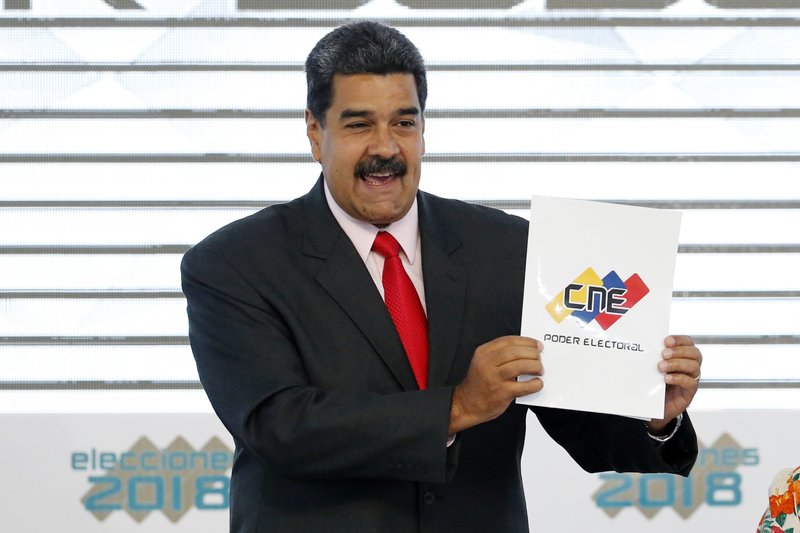BOGOTA, Colombia -- As a meeting last August in the Oval Office to discuss sanctions on Venezuela was concluding, President Donald Trump turned to his top aides and asked an unsettling question: With a fast unraveling Venezuela threatening regional security, why can't the U.S. just simply invade the troubled country?
The suggestion stunned those present at the meeting, including U.S. Secretary of State Rex Tillerson and national security adviser H.R. McMaster, both of whom have since left the administration. This account of the previously undisclosed conversation comes from a senior administration official familiar with what was said.
In an exchange that lasted around five minutes, McMaster and others took turns explaining to Trump how military action could backfire and risk losing hard-won support among Latin American governments to punish President Nicolas Maduro for taking Venezuela down the path of dictatorship, according to the official. The official spoke on the condition of anonymity because of the sensitive nature of the discussions.
Although Trump gave no indication he was about to order up military plans, he pointed to what he considered past cases of successful gunboat diplomacy in the region, according to the official, like the invasions of Panama and Grenada in the 1980s.
The next day, Aug. 11, Trump alarmed friends and foes alike with talk of a "military option" to remove Maduro from power. The public remarks were initially dismissed in U.S. policy circles as the sort of martial bluster people have come to expect from the reality TV star turned commander in chief.
But shortly afterward, he raised the issue with Colombian President Juan Manuel Santos, according to the U.S. official. Two high-ranking Colombian officials who spoke on condition of anonymity to avoid antagonizing Trump confirmed the report.
Then in September, on the sidelines of the U.N. General Assembly, Trump discussed it again, this time at greater length, in a private dinner with leaders from four Latin American allies that included Santos, the same three people said and Politico reported in February.
The U.S. official said Trump was specifically briefed not to raise the issue and was told it wouldn't play well, but the first thing the president said at the dinner was, "My staff told me not to say this." Trump then went around asking all of the leaders individually if they were sure they didn't want a military solution, according to the official, who added that each leader told Trump in clear terms they were sure.
Eventually, McMaster pulled the president aside and walked him through the dangers of an invasion, the official said.
The White House declined to comment on the private conversations. But a National Security Council spokesman reiterated that the U.S. will consider all options at its disposal to help restore Venezuela's democracy and bring about stability.
Under Trump's leadership, the U.S., Canada and European Union have levied sanctions on dozens of top Venezuelan officials, including Maduro himself, over allegations of corruption, drug trafficking and human rights abuses. The U.S. has also distributed more than $30 million to help Venezuela's neighbors absorb an influx of more than 1 million migrants who have fled the country.
Trump's comments provided Maduro with an immediate if short-lived boost as he was trying to escape blame for widespread food shortages and hyperinflation.
On Wednesday, Maduro cited The Associated Press' article to reaffirm his long-standing claim that the U.S. has military designs on Venezuela and its vast oil reserves. At a military promotion ceremony in Caracas, he called on troops to remain vigilant, criticizing what he called the "supremacist and criminal vision of those who govern the U.S."
"A military intervention on the part of the U.S. empire will never be a solution to Venezuela's problems," he said.
Even some of the staunchest U.S. allies were begrudgingly forced to side with Maduro in condemning Trump's comments. Santos, a big backer of U.S. attempts to isolate Maduro, said an invasion would have zero support in the region. The Mercosur trade bloc, which includes Brazil and Argentina, issued a statement saying "the only acceptable means of promoting democracy are dialogue and diplomacy" and repudiating "any option that implies the use of force."
Information for this article was contributed by Jill Colvin of The Associated Press.
A Section on 07/05/2018
